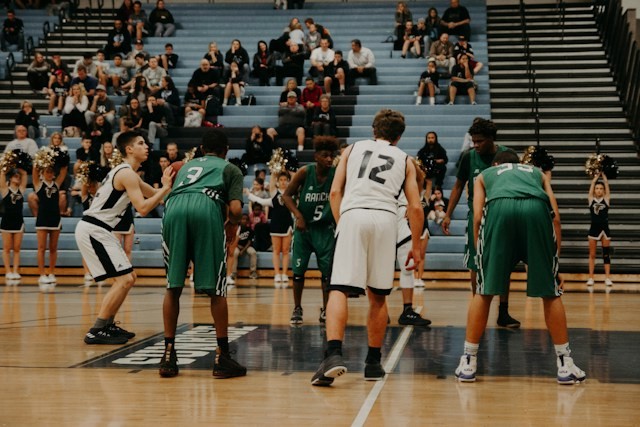
In a decision that could trigger tectonic shifts in collegiate athletics, the National Labor Relations Board (NLRB) approved a union election aimed at members of the Dartmouth College men's basketball team on Monday.
Last year, the players petitioned with NLRB to align with a local branch of SEIU, one of the most influential labor unions, which already represents a few groups at Dartmouth. This move came amidst a surge of union activism on campuses nationwide, including Dartmouth, with the union formation leaders openly citing this trend as an inspiration.
Laura Sacks, NLRB's regional director in Boston, found that players fit the definition of workers under the NLRA (National Labor Relations Act) and, hence, are eligible to form a union. Sacks argued that the coaches and other school employees exercise control over the work of the Dartmouth men's basketball team, and in return, the athletes receive remuneration for their work.
Are Scholarships a Form of Payment to College Athletes?
Dartmouth has objected to this resolution, asserting that the monetary aid it provides to athletes is need-based and cannot be considered compensation. Dartmouth and all the Ivy League schools don't offer athletic scholarships.
Although Sacks didn't specify the election date, union votes generally fall between weeks and months following such directives. This ruling follows a hearing conducted in October, after a particularly long interval, signifying the sensitivities associated with the issues discussed.
The organizer's attorney, Jake Krupski, commented, "The players are extremely thrilled with this decision." Two basketball team members, Cade Haskins and Romeo Myrthil, also shared their enthusiasm and hoped this ruling would spark similar nationwide movements.
Are We Seeing a Shift in College Sports?
The Dartmouth election would represent the first of its kind in major college sports in recent years, succeeding a similar attempt by the Northwestern University football team. However, in that case, the agency's board scrapped the case on a jurisdictional base without counting the votes.
One considerable hurdle during that period stemmed from Northwestern participating in an athletic conference primarily consisting of public universities, thus governed by their respective state laws and not the NLRA. Comparatively, Dartmouth is an Ivy League member, consisting only of private institutions, a significant detail highlighted by Sacks.
A Dartmouth representative stated that the institution disapproves of unionization in this instance and would request a review of Sacks' order by the agency's board, which has a 3-1 Democratic majority with a vacant seat.
The Larger Battle - NLRB vs Big-Time College Athletics
College leaders and NCAA officials have reportedly been requesting Congress to enact comprehensive laws that will categorically prevent athletes from being classified as employees and protect sports programs from federal antitrust laws. They caution that enabling unionization or extending other employee rights to athletes, such as minimum wage or overtime guarantees, could destabilize the multibillion-dollar enterprise.
Yet, these appeals haven't significantly impacted Congress, which is busy with diverse issues and has not yet echoed the same level of haste expressed by figures like NCAA President Charlie Baker.
The Dartmouth case is one of the two ongoing battles between the NLRB and big-time college athletics. The agency is concurrently targeting the University of Southern California, the defunct Pac-12 Conference, and the NCAA, accusing them of misclassifying athletes as non-employees and implementing social media policies that infringe upon employees' federally protected speech rights.
This case awaits a verdict from an administrative law judge following the conclusion of the testimony in February. A ruling against these three entities could dramatically alter how private institutions regulate athletes' conduct.




